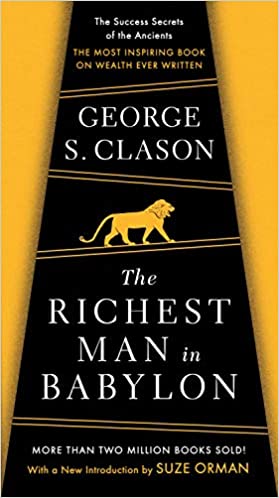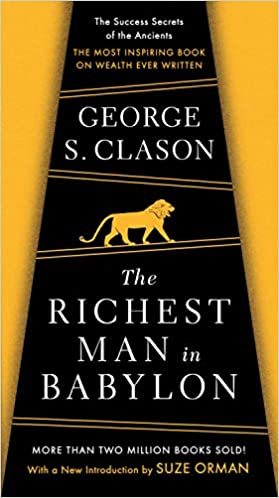The Richest Man in Babylon

I have been listening to Dave Ramsey since I got out of college. His principles did help me to pay off all of my college debt and start off on the right foot. I have been listening to conservative financial advice ever since then. I had heard of “The Richest Man in Babylon” many times, but had never read it. I ordered something on Amazon the other day and needed to spend an extra $5 to get free shipping, so I figured why not.
I have mixed feelings about this book. It is a quick and easy read and it is entertaining. I read it in one sitting. It contains all the classic conservative financial tropes: work hard, spend less than you earn, save, invest conservatively, etc. It is certainly good advice, but I feel like as in most self-help type books, it oversimplifies things. It comes off as “All you have to do is follow these simple rules and everything will be fine.” They are certainly good principles, but applying them in context is not simple. I feel like it lacks the practical application side of things.
The book does contradict itself a little bit. Particularly when talking about luck and opportunities. It mentions that what we perceive as luck is really just about taking advantage of the opportunities that present themselves and not hesitating. I totally agree with this, however it is somewhat at odds with the invest conservatively mantra.
The book definitely is a product of its age. In reading it today you have to take into account when it was written (the 1920s). A modern-day feminist would probably be put off by the title and the fact most of the characters are men. It also touches on slavery quite a bit. Although it is talking about slavery in the sense of ancient Babylon and not the US in the early 1800’s it is still makes for an interesting read given all that is going on today. If you can get past those things it is a good read and it does explore some useful principles.
As far as recommending the book: If your finances are a complete mess and you are looking for some pointers, it is probably worth reading. The principles are solid, if simplistic, but don’t look for too much practical advice on implementing them. If you want that, I highly recommend listening to Dave Ramsey and reading some of his books. If you are already well versed in the typical conservative financial advice then there’s probably nothing new for you in this book.
